The homework that inspires horror in families
- Published
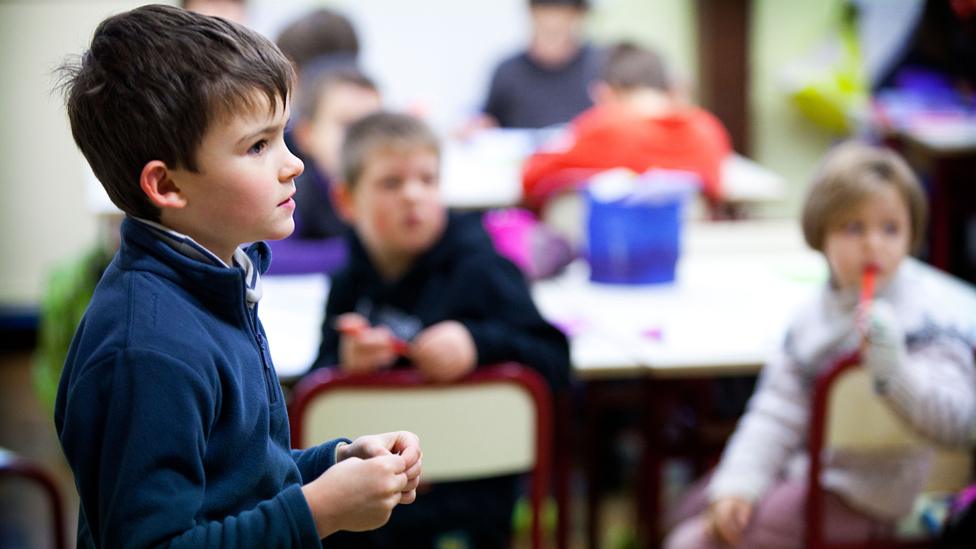
Homework can sometimes be a nightmare - for both children and their parents. In France the ritual of copying out poems and learning them by heart is no exception and can fill whole families with horror, writes Joanna Robertson in Paris.
Twenty-six pupils have carefully copied, in regulation cursive script, in their homework diaries: "Friday. Poetry book. Recite."
Le cahier de poesie - the poetry book - is a standard-format exercise book required by every primary school child in France. Ninety-four mixed pages, lined and blank. The lined - for the pupil to copy out the text of a poem. The blank - for them to provide an illustration.
They'll copy out, illustrate, learn by heart and recite - in front of the class - poems ranging from La Chanson de Roland, an epic from the 11th Century, to poems written just a few months ago. And rest assured, no-one will escape a thorough knowledge of the 17th Century fables of Jean de la Fontaine.
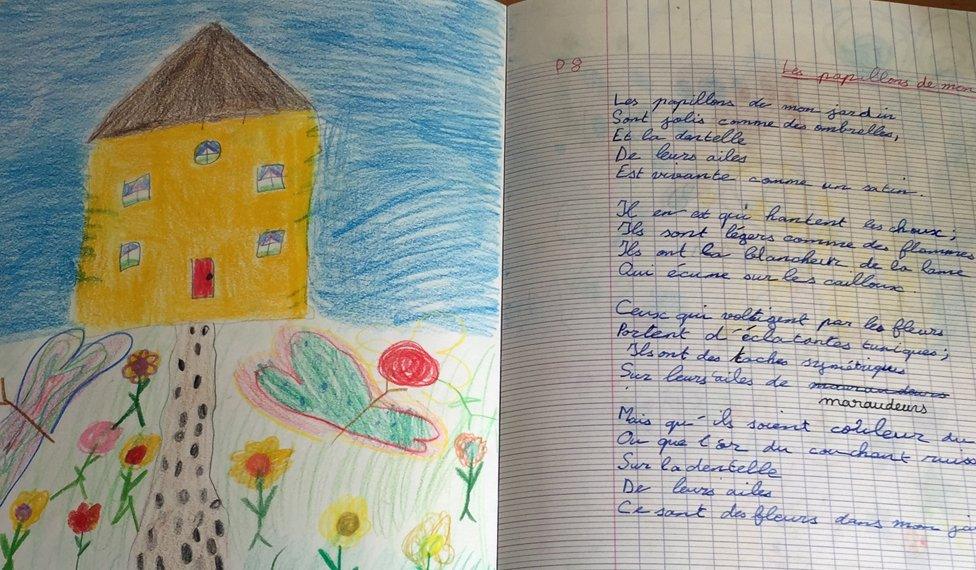
There's a typically rigorous marking system for handwriting, drawing, tone and expression and, most importantly, memory. You'll sail through with neat handwriting and perfect recall, but flunk entirely if you're a scatty, messy, budding Matisse.
One by one, in turn, pupils walk up to the blackboard, take a deep breath and begin. Twenty-six renderings of the same poem by Pierre Gamarra, in the same high-pitched sing-song voice:
"Mon cartable sent l'orange,/ le bison et le nougat,
il sent tout ce que l'on mange,/ et ce qu'on ne mange pas."
My schoolbag smells of orange,/ bison and nougat,
it smells of things we eat,/ and things we don't.
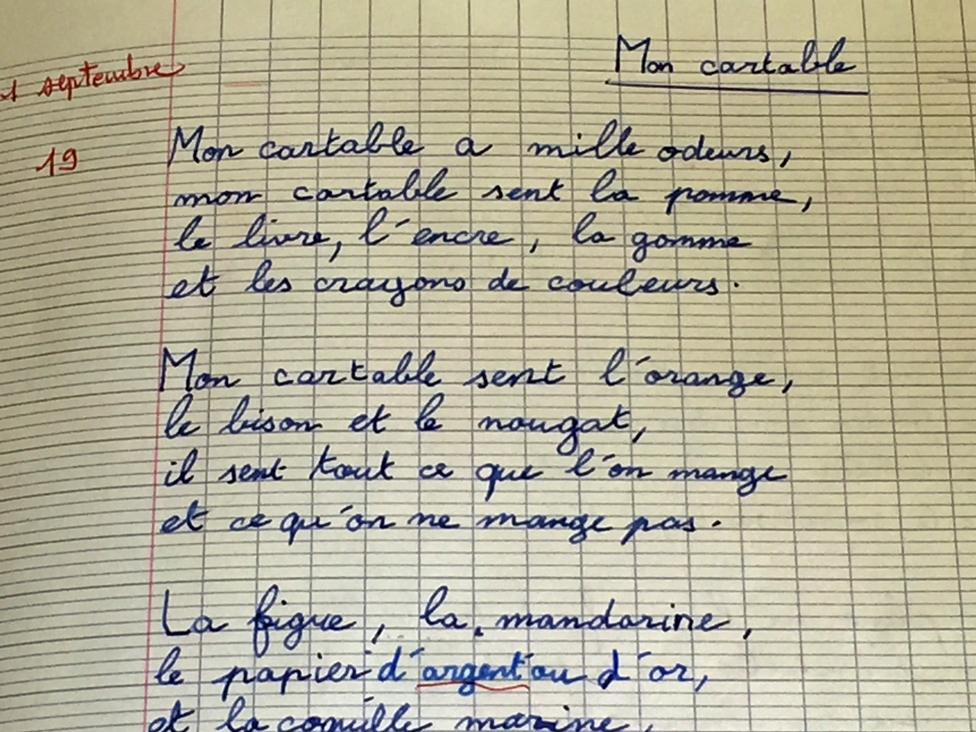
The teacher holds up the pupil's exercise book, high, for all the class to see the handwriting and the drawing. The moment of public scrutiny that can be so humiliating. The moment for sniggers, blushes, derisive hilarity and, sometimes, tears.
Amandine, a bookish nine-year-old with purple glasses, remembers something even worse: "It's a big thing to get up there in front of the class," she says and describes how one boy "opened his mouth and nothing came out - he wet himself, we could all see it."
But the trauma must mostly be eventually forgotten because the cahier de poesie is the schoolbook most cherished by both parents and children. It's a shared national experience that reaches across generations.
Nadia Goutal, the daughter of Russian immigrants fleeing the revolution, still has the poetry books from her 1930s schooldays - and those of her daughters from the 1960s and 70s. Now, her five grandchildren have carried the collection into the 21st Century.
"The poems are all there still in my head," she says. "Baudelaire, Rimbaud, Ronsard, Verlaine and Shakespeare - in English: 'To be or not to be.' What my grandchildren learn is different, more Jacques Prevert and Maurice Careme. Even with poetry, fashions change."

Find out more
From Our Own Correspondent has insight and analysis from BBC journalists, correspondents and writers from around the world
Listen on iPlayer, get the podcast or listen on the BBC World Service or on Radio 4 on Thursdays at 11:00 BST and Saturdays at 11:30 BST

With about 10 to 15 poems each school year, the poetry exercise book can be a homework nightmare. Families have different techniques for learning that poem by heart, and not all are willing to divulge their private, highly individual, methods.
Some dance around the room, chanting verses. Others have intricate poetry drills where mime and action become vital triggers. Bouncing vigorously up and down on the bed can get the stanzas to stick, as can singing them loudly in the shower. Chocolate is the bribe of choice, and parents can get sneaky.
At least one anxious mother, who prefers to remain anonymous, admits to quietly slipping her son's poetry book out of his schoolbag while he slept and perfecting his drawing.
Although learning poetry has been part of French school life since the 1880s - and the country's publishers print thousands of new poems each year - only about 1% of the population actually reads it as adults.
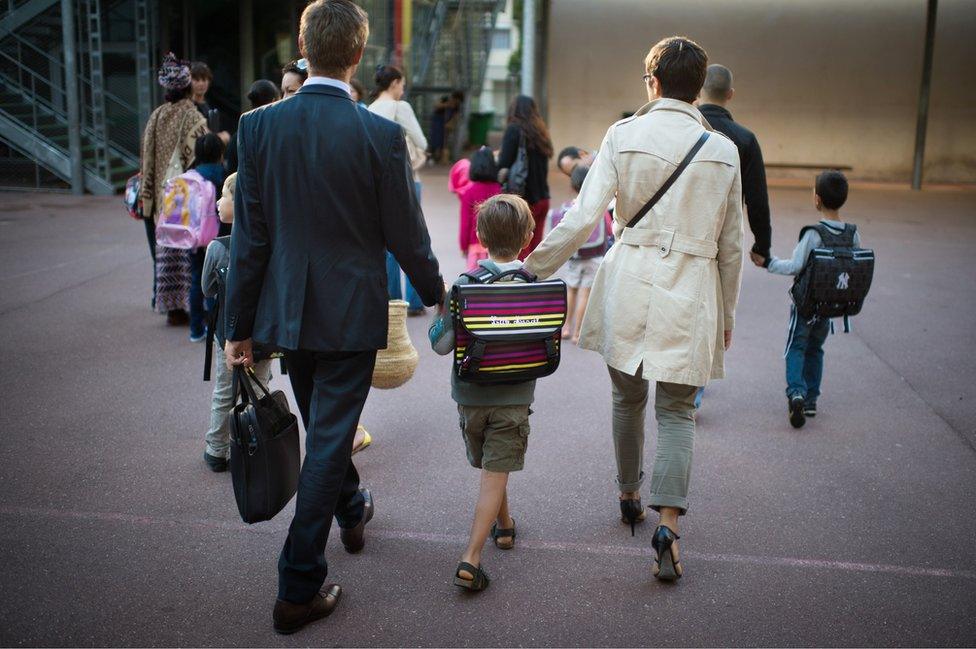
Le Printemps de Poetes, Poets' Spring, is a project that's been trying for the past 17 years to free school poetry from the rigid, neat-handwriting-good-memory approach, and make it accessible, spontaneous and creative.
For a whole three weeks a year, the project enables schools to go even more poetry-mad.
Begin the day with a poem. End the day with a poem. Compose a poem and tie it to a tree, or to a balloon and send it floating up above the rooftops of Paris. Cork a poem in a bottle, cast it into the river Seine or fling it out to sea. Whisper a poem down a long, long tube into someone's ear. Listen to a poem in quiet darkness, or with your head lying on a pillow.
For the rest of the school year, however, it's back to the bi-weekly, public recitation.
"Dans cette ecole, il y a/ Des oiseaux chantant tout le jour
Dans les marronniers de la cour./ Mon coeur, mon coeur, mon coeur qui bat
Est la."
In this school, there are/ Birds singing all day long
In the chestnut trees in the playground/ My heart, my heart, my beating heart
Is there.
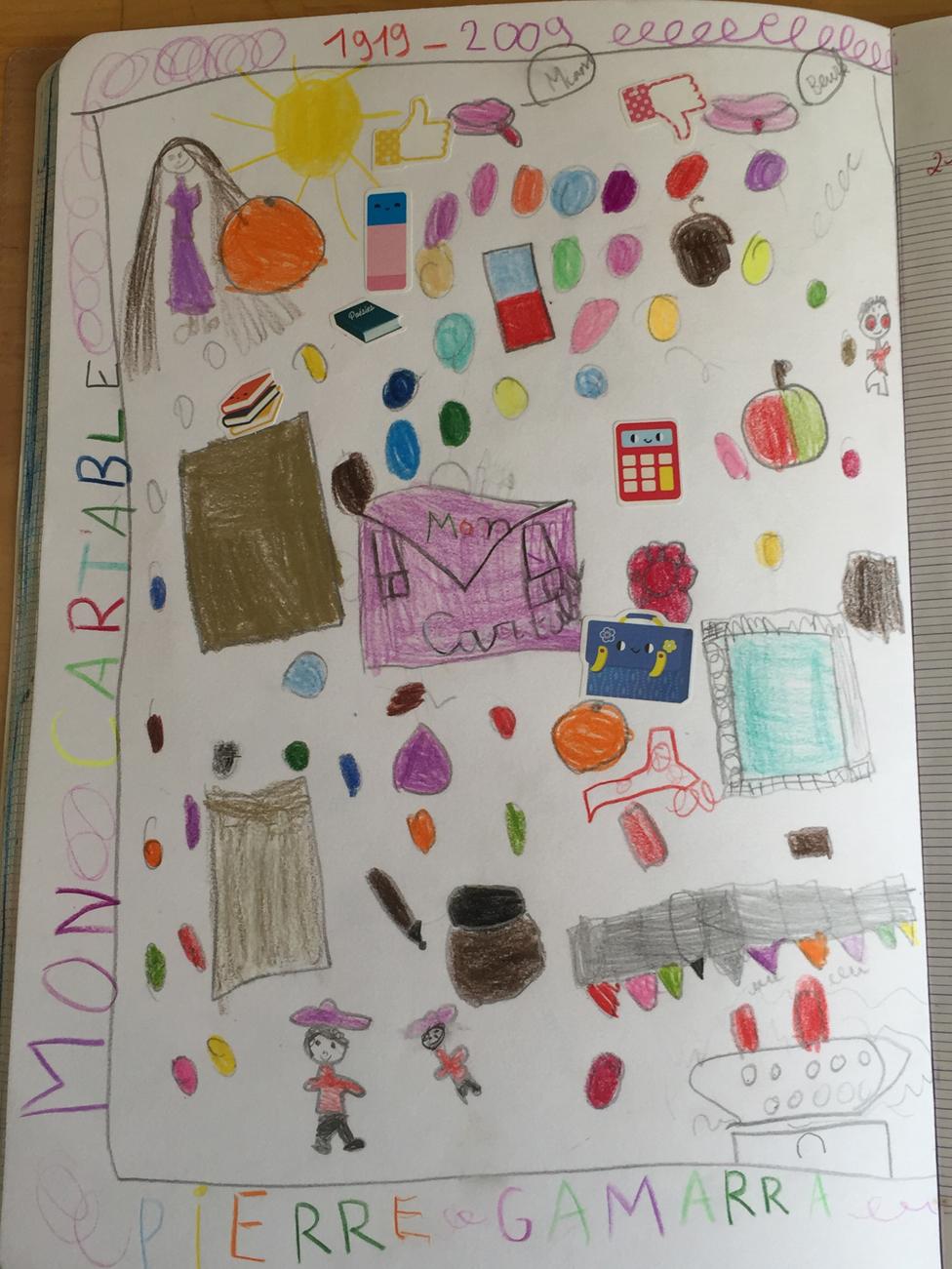

Do you think your children get too much homework? Join the conversation - find us on Facebook, external

Subscribe to the BBC News Magazine's email newsletter to get articles sent to your inbox.